“I mean please, we can, we can get along here. We all can get along. We just gotta. We gotta. I mean, we’re all stuck here for a while. Let’s, you know, let’s try to work it out. Let’s try to beat it, you know. Let’s try to work it out.”
~Rodney King
Reacting to Los Angeles Riots
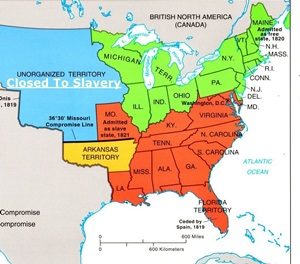
1820 – Congress passed the Missouri Compromise.
At the time the state’s population was 56,000 free men and women and 10,000 slaves. Missouri’s application opened a political firestorm over the spread of slavery in the new western territories and disrupted the balance of free and slave states.
There were 22 states in the Union, 11 free and 11 slave states. Missouri wanted to be the 23rd state.
The compromise granted Missouri statehood as a slave state in 1821 under the condition that slavery was to be forever prohibited in the rest of the Louisiana Purchase north of the 36th parallel (the blue section of the map above).
In addition, Maine, formerly part of Massachusetts, was immediately admitted as a free state, preserving the balance between Northern and Southern senators.

1845 – Congress reined in President John Tyler’s zealous use of the presidential veto, overriding it with the necessary two-thirds vote.
This marked Congress’ first use of the Constitutional provision allowing Congressional veto overrides and represented Congress’ parting gift to Tyler as he left office.
About two weeks earlier, Tyler had vetoed a Congressional bill that would have denied him the power to appropriate federal funds to build revenue-cutter ships without Congress’ approval.
With the override, Congress insisted that the executive branch get the legislature’s approval before commissioning any new military craft.
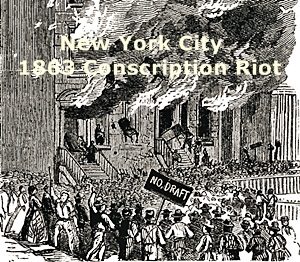
1863 – Congress passed a conscription act that produced the first wartime draft of U.S. citizens in American history. The act called for registration of all males between the ages of 20 and 45, including aliens with the intention of becoming citizens by April 1.
Exemptions from the draft could be bought for $300 or by finding a substitute draftee.
That clause led to bloody draft riots in New York City, where protesters were outraged that exemptions were effectively granted only to the wealthiest U.S. citizens.
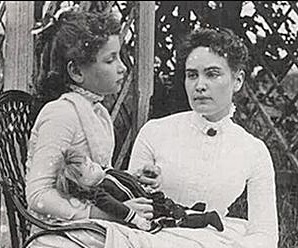
1887 – Anne Sullivan began teaching six-year-old Helen Keller, who lost her sight and hearing after a severe illness at the age of 19 months.
Under Sullivan’s tutelage, including her pioneering “touch teaching” techniques, the previously uncontrollable Keller flourished, eventually graduating from college and becoming an international lecturer and activist.
Sullivan, later dubbed “the miracle worker,” remained Keller’s interpreter and constant companion until the older woman’s death in 1936.
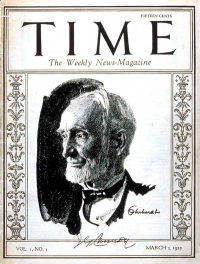
1923 – Time magazine debuted.
The first issue was 32 pages and featured a charcoal sketch of Joseph Gurney Cannon, the retired Speaker of the U.S. House of Representatives, on the cover. It was the United States’ first modern news magazine.
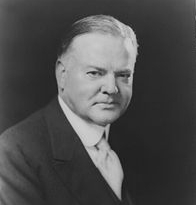
1931 – President Herbert Hoover signed into law a congressional resolution making The Star-Spangled Banner the national anthem.
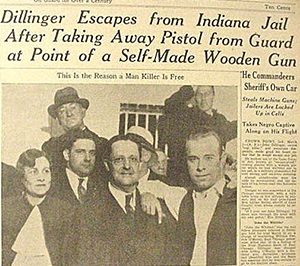
1934 – While awaiting trial for the murder of police officer William O’Malley during a bank robbery in East Chicago, Indiana, John Dillinger escaped from the “escape proof” Lake County Jail in Crown Point.
He forced his way out of the main cell block by brandishing a “weapon” Dillinger later claimed he had fashioned from a block of wood, a razor handle and a coat of black shoe polish.
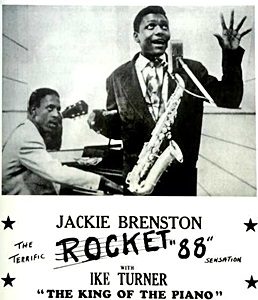
1951 – Jackie Brenston and his Delta Cats recorded Rocket 88, often cited as “the first rock and roll record”, at Sam Phillips’ recording studios in Memphis, Tennessee.
The sole songwriting credit went to vocalist Brenston even though 19-year-old Ike Turner co-wrote it, and it was Turner’s Kings of Rhythm band who actually recorded it.
Turner, much better known as a guitarist in later years, played piano on the song.
Ripped Off Factoid: Turner and the band were only paid $20 each for the record, with the exception of Brenston, who sold the rights to Phillips for $910.
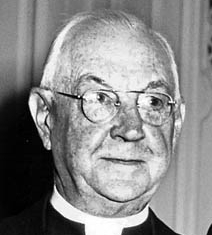
1957 – Chicago’s Cardinal Samuel Stritch banned all rock & roll and rhythm & blues music from Catholic-run schools, saying that “its rhythms encourage young people to behave in a hedonistic manner.”
It wasn’t the first time Cardinal Stritch had banned music.
In October 1955, he expressly forbade the playing of the Wagner and Mendelssohn wedding marches, eight versions of Ave Maria, and secular titles such as I Love You Truly, Because, and O Promise Me in all Catholic churches of the Chicago archdiocese.
He deemed the music “unsuitable because they fail to meet the primary requisite of sanctity. No deviation can or will be permitted.”
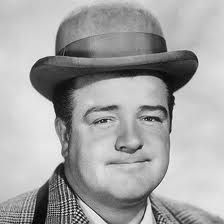
1959 – Lou Costello (Abbott and Costello comedy team) died of a heart attack at the age of 52.

1966 – A violent F5 tornado, dubbed the Candlestick Park tornado after the name of a Jackson, Mississippi, shopping mall which was leveled by the storm, wrought catastrophic damage in Mississippi.
The twister, with winds topping 200 mph, destroyed the Candlestick Park shopping center and dozens of homes and businesses, including a glass factory that was severely mangled. A brick Baptist church was destroyed with such force that it seemingly “exploded.”
The tornado carved a path of destruction across central and east central Mississippi, where a total of 58 people were killed and over 500 were injured.
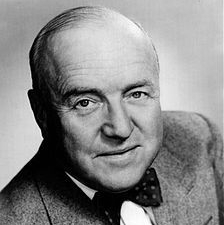
1966 – Actor William Frawley died of a heart attack at the age of 79.
He starred in Miracle On 34th Street, Going My Way, and The Babe Ruth Story, but was best known for his television work, playing Fred Mertz on I Love Lucy and Bub O’Casey on My Three Sons.

1966 – Actress Alice Pearce died of ovarian cancer at the age of 48.
She appeared in On The Town and The Belle Of New York, but was best known for playing nosy next door neighbor Gladys Kravitz on Bewitched.
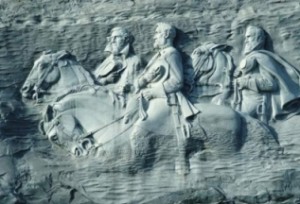
1972 – The Confederate Memorial – the largest bas-relief sculpture in the world – was completed at Stone Mountain, Georgia.
The carving depicts three Confederate leaders of the Civil War; President Jefferson Davis and Generals Robert E. Lee and Thomas Stonewall Jackson (and their favorite horses, “Blackjack”, “Traveller”, and “Little Sorrel”, respectively).
The entire carved surface measures 3 acres, about the size of two and a quarter football fields. The carving of the three men measures 90 by 190 feet, and is recessed 42 feet into the mountain.

1973 – At the 15th Grammy Awards, “George Harrison and Friends” won Album of The Year for The Concert For Bangladesh.
Those “friends” included Ravi Shankar, Eric Clapton, Ringo Starr, Bob Dylan, Leon Russell, Klaus Voormann, Billy Preston, and members of Badfinger.
In an early display of feminism, Helen Reddy accepted the award for Best Pop Performance, Female (I Am Woman) by thanking God “because She makes everything possible.”
The Record of The Year Grammy went to Roberta Flack for First Time Ever I Saw Your Face. Ewan MacColl, who wrote the song, won the Grammy Award for Song of The Year.

1974 – A Turkish Airlines DC10 crashed near Paris, en route to London, killing all 345 people on board. A mechanic in Paris was supposed to do a visual inspection of the rear hatch door. However, the regular mechanic was on vacation on that day and the flight engineer apparently forgot to assume this duty.
As the plane reached an altitude of 11,000 feet just after takeoff from Paris, the rear hatch door blew off over Coulommiers, France.
A rapid decompression followed. The last two rows of seats on the plane were sucked out of a hole in the fuselage. The six passengers in those seats were killed immediately when they fell into a turnip field in St. Pathus.
The other 340 people on board had to endure 90 more seconds in the air. The pilots were unable to control the plane because all the critical hydraulic cables had been severed.
The plane slammed into the ground at 500 miles per hour, killing everyone on board. The impact was so severe that only 40 bodies were found intact.

1987 – Actor Danny Kaye died of heart failure at the age of 76.
He starred in White Christmas, The Secret Life Of Walter Mitty, The Inspector General, and Hans Christian Andersen.
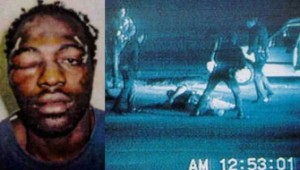
1991 – In a case that sparked a national outcry, motorist Rodney King was severely beaten by Los Angeles police officers in a scene captured on amateur video.
Four officers were tried on charges of use of police brutality; three were acquitted by an all-white jury. The jury failed to reach a verdict on one charge for the fourth and a mistrial was declared. Within hours of the acquittals, the 1992 Los Angeles riots started, sparked by outrage among African Americans over the trial’s verdict and related, long standing social issues.
The rioting lasted six days and killed 63 people with 2,383 more injured; it ended only after the California Army National Guard, the United States Army and the United States Marine Corps provided reinforcements to re-establish control.

2005 – James Roszko murdered four Royal Canadian Mounted Police constables during a property seizure at his farm near the town of Mayerthorpe in the Canadian province of Alberta.
With a Heckler & Koch 91, Roszko shot and killed Royal Canadian Mounted Police constables Peter Schiemann, Brock Myrol, Lionide (Leo) Johnston, and Anthony Gordon. The four officers were ambushed inside a quonset shed on the farm.
Roszko then committed suicide.
The shootings were the deadliest peacetime incident for the RCMP since 1885.
On July 9, 2007, two men, Shawn Hennessey, 28, and Dennis Cheeseman, 23, were charged as parties to the offenses committed by James Roszko. Both men later admitted that they knew that Roszko had plans to harm police.
On January 30, 2009, Hennessey and Cheeseman were sentenced to 15 and 12 years in prison respectively.
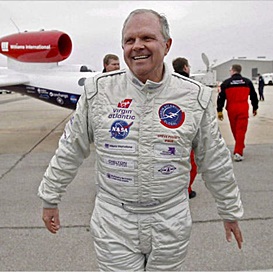
2005 – Steve Fossett became the first person to fly solo, non-stop around the globe without refueling; a journey of 25,000 miles completed in 67 hours and 2 minutes.
Aftermath: Fossett disappeared on September 3, 2007 while flying a light aircraft over the Great Basin Desert, between Nevada and California.
In September 2008, a hiker found Fossett’s identification cards in the Sierra Nevada Mountains, California, leading shortly after to the discovery of the plane’s wreckage.
Legacy Factoid: Fossett set more than one hundred records in five different sports, sixty of which still stood at the time of his death.

2006 – Paul Gadd, known professionally as Gary Glitter, was sentenced to three years in a Vietnamese prison after being found guilty of molesting two 11-year-old girls.
Gadd, who had a worldwide hit in 1972 with Rock & Roll, Pt. 2, was released from Thu Duc prison in August 2008 and after 19 countries – including Cuba, Cambodia, and the Philippines – announced that they would refuse to admit him, he returned to the UK.
Wait, it gets worse.
In January 2015, he appeared at Southwark Crown Court in London, accused of seven counts of indecent assault, one count of attempted rape, and two other sexual offenses, against three girls (between 12-14 years old), between 1975 and 1980.
Gadd was convicted and sentenced to 16 years in prison.
No Royalties Factoid: Gadd will not receive any royalties after his hit song was used in the Joker film because he sold the rights to his music 23 years ago.
The song accompanies a pivotal scene in the film when the title character (Joaquin Phoenix) transforms into the Clown Prince of Crime and dances down a staircase in celebration.
Compiled by Ray Lemire ©2020 RayLemire.com / Streamingoldies.com. All Rights Reserved.
It’s hard for me to fathom how anyone can feel it is appropriate to own another person … and yes I know it is still happening today. But for Congress to allow Montana into the Union and then allowing Maine in to “balance the scale” is difficult for me to understand …
Air disasters and natural disasters both cause havoc as they leave a bloody aftermath. And this air disaster (as with many others) human error was the cause …
I would love to see the Confederate Memorial – and hope at some point “we” don’t feel it needs to be destroyed …. memorials are a glimpse into our past and should never be destroyed as good or bad they are who we were at the time.
Steve Fossett was an explorer of a sort – and died doing something he loved. Not the worst way to die …
Paul Gadd makes me wonder why the death penalty doesn’t cover abuse …
Lots of food for thought today Ray – thanks for the continued education …. and we’re heading towards spring for sure – a good reason to Rock Any Day!
Thanks, Barbara.
I couldn’t agree more about the Confederate memorials. The reasoning behind the confederacy may have been deplorable, but those monuments are a symbol of our collective history.
I would volunteer to put Paul Gadd in my sights (and I’m a pacifist!)
Rock The Day!
Wartime drafts, I can only imagine how terrifying….Helen had a good friend in Anne, beautiful story. The debut of Time magazine and a national anthem! Jail break! Musical rip-offs and bans! I always forget how young Costello was when he died. Tornadoes are some kind of scary! Such destruction and loss! I always got a kick out of Mrs. Kravitz. I believe in equal rights for females but disagree on her pronoun choice. Such a horrible plane crash…and sadly preventable. Racial profiling is scary and too real! Fossett lived and died on his own terms and staying true to his dreams. Gadd makes me ill! Some of my take aways on this beautiful sunny day!
Thank you, Wendyl. 🙂
Wartime drafts ARE terrifying! I remember all too well.
Helen and Anne … BFF
Cardinal Stritch must have been fun at parties.
George and his friends did well, and you’re right about Ms. Reddy’s choice of pronouns.
Overall, another nicely done take on the day!
A+ (again!)
You know we talk a lot about slavery and how could our country do such despicable things to other human beings but what we don’t remember or unaware of is that slavery was a world wide practice. It had been going on for thousands of years. Other countries were importing slaves just like we did. I am not saying it was okay but I can see how it happened that it was socially acceptable.
I never realized that states kept track of how many slaves were in each state. It isn’t clear to me who actually benefited from the Missouri compromise and it all became moot.
Interesting to read about the Conscription Act…quite an age range, for a price you could get out of it, and it included non citizens.
Helen Keller was an incredible individual but she had Anne Sullivan to thank for all she became.
I wonder if the first edition of Time had ads?
Did President Hoover chose the Star Spangled Banner from a “list” of songs or just liked the song? Some say it is hard to sing, etc. But it stirs my heart whenever I hear it.
Wow, it must have been a convincing block of wood if they actually thought it was a gun.
The music business seems to be very cutthroat!
Cardinal Stritch should have been worrying more about what was going on with his fellow priests not what music we listened to or used at weddings.
Lou Costello was an adorable man.
Imagine wind at 200 mph! Nature is merciless.
Gotta love William Frawley and his beloved roles.
What a beautiful carving, it must have taken forever! Was it the work of one or many? I hope it is never destroyed.
Good for Helen Redding. The song The First Time…is so beautiful, it deserved to win. What an amazing group of musicians on the album of the year. Wonderful music.
I remember that plane crash…to think it was due to human error makes it more horrendous.
I’m loved Danny Kaye, he was one of the good guys.
The Rodney King incident reminded us that racism and hatred were still alive and well.
Steve Fossett…he lived as he died, doing what he loved and excelling at it.
Bad didn’t deserve any royalties but he sure deserved more time in jail!
Thanks as always, fascinating stuff.
Hope you are enjoy this taste of spring.
Thanks, Donna!
Slavery did exist long before America was discovered by Columbus and it continued long after the U.S. ended the practice. That is why I don’t have a problem with Confederate monuments. Good or bad, they are a part our history and to eradicate them is to erase history.
Three sculptors worked on the Stone Mountain carving during its creation. In order, they were Gutzon Borglum (who later was responsible for Mount Rushmore), Augustus Lukeman, and Walker Kirkland Hancock … and of course, thousands of individual carvers. Work started in 1923 and ended in 1972.
The Star Spangled Banner was selected via a congressional resolution.
‘The First Time’ was the #1 song the day my youngest daughter was born.
I’m giving you another A+ 🙂
Thanks Ray! I agree we should not run around destroying monuments to our history.
Fascinating about the carving…took a long time. I will be seeing Rushmore this fall, so I will learning this tidbit from you.
What an amazing song to come out on the day your daughter was born! Gives me goosebumps and if I think about it long enough my eyes would get runny.